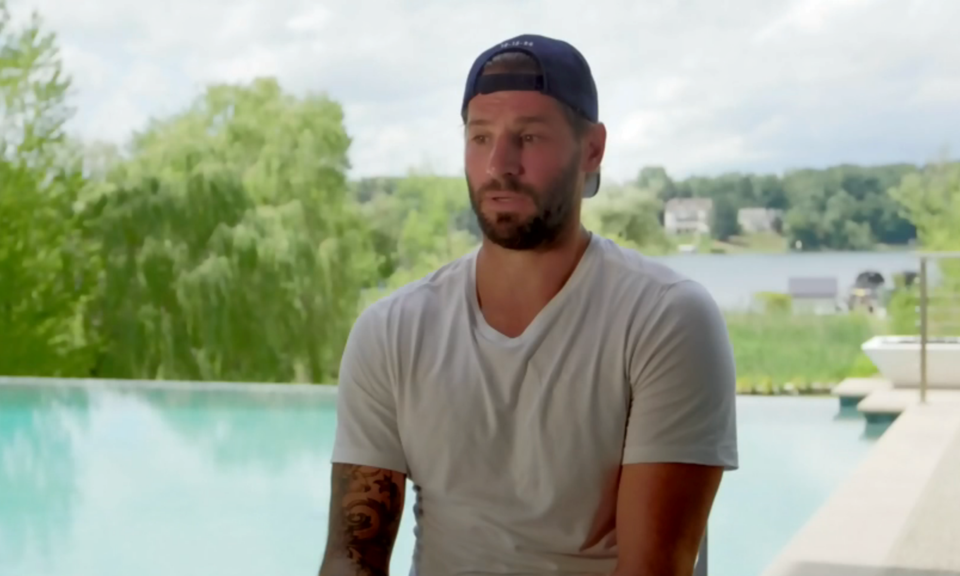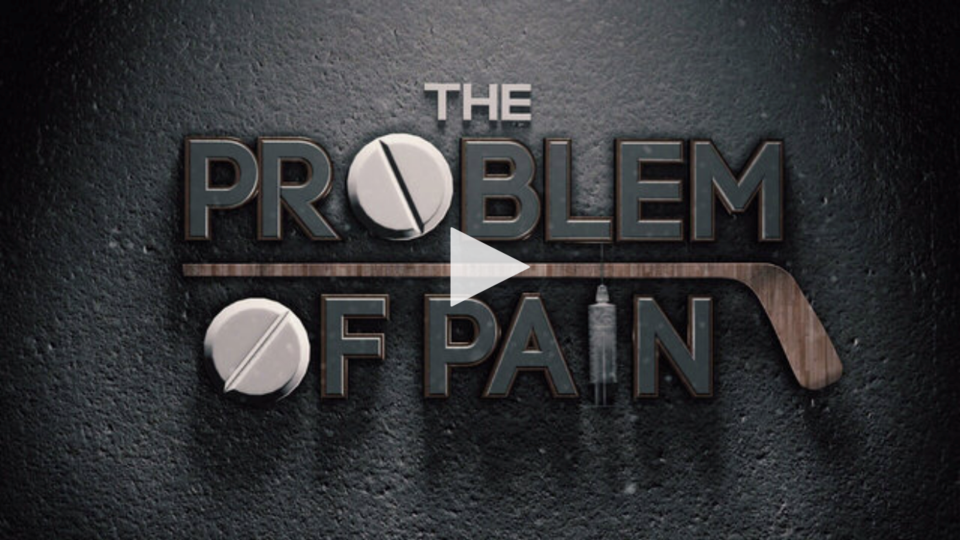One of the most famous moments in Canucks history is about playing through injury. It’s Jim Robson’s immortal line at the end of Game 6 of the 1994 Stanley Cup Final: “He will play! You know he’ll play! He’ll play on crutches!”
Trevor Linden did play in Game 7 in Madison Square Garden, though he fortunately didn’t need crutches. His teammate, Cliff Ronning, later shared what was going on behind the scenes for Linden: he was playing with cracked ribs and torn rib cartilage in the final four games of that series.
“You can’t imagine what it’s like to hear your captain, in a room down the hall, screaming at the top of his lungs as they injected the needle into his rib cage,” said Ronning. “Knowing him, he probably thought we couldn’t hear. He would then walk into our dressing room like nothing had happened. That was inspirational.”
It’s a major part of the legend of Linden in Vancouver and it’s a major part of hockey culture. Playing through injuries is expected out of hockey players. If they don’t, they’re made to feel like they’re letting down their teammates, coaches, and fans.
Players don’t play through injuries through sheer strength of will, however. Instead, it takes a lot of painkillers. Even Linden needed the “needle” in his rib cage to play in the 1994 Stanley Cup Final.
A new investigative report from TSN called “The Problem of Pain” delves into the use of painkillers across the NHL and the lack of information players receive on the long-term consequences of their repeated use. Former Canuck Ryan Kesler is one of the main players interviewed in the report, detailing the issues he’s faced after using one painkiller, Toradol, repeatedly throughout his career.
Kesler famously played through serious injuries in the 2011 playoffs. Already suspected to have a leg injury in his dominant series against the Nashville Predators, he suffered a groin tear and hip labrum tear in Game 5 of the Western Conference Final against the San Jose Sharks. He didn’t miss a game.
“For me, I only knew one position, and it was full out and full gear,” says Kesler in the report. “I battled through a lot and it takes a lot out of you. Just to put it very simply, you feel like you’ve been hit by a Mack truck, you feel like you’ve been in a car accident. That’s really what I went through.”
According to TSN’s report, Toradol is not meant to be used for more than five days. It’s meant for short-term treatment of pain, often used before or after surgery. It’s not meant for long-term use, but the report says many players in the NHL use Toradol before every game as a preventative measure. This has some serious side effects.
“When it was really bad, I used Toradol,” says Kesler. “I never wanted to hurt the team, so I knew I had to play. And to play you’ve gotta take painkillers because if you don’t do that, you’re going to be labelled as a guy that doesn’t battle through injuries and that’s not something I wanted.”
“I’m focusing on the now,” he adds. “I’m injured, I’m going to take a pill, I’m not going to worry about what happens to me 15 years down the road, I’m not going to worry about my hips when I play through injuries or I don’t get surgery right away and I play through pain the rest of the year and I live on Toradol.”
According to his doctors, Kesler’s overuse of Toradol led to colitis, which causes inflammation of the inner lining of the colon.
“It ate holes in my colon,” he says. “I wasn’t made aware of what this drug could potentially do to me.”
Eventually, Kesler was diagnosed with Crohn’s disease. One of the key risk factors for Crohn’s disease is the use of nonsteroidal anti-inflammatory medications, of which Toradol is one.
This has had a serious impact on Kesler’s day-to-day life after hockey. His medical treatments to keep his Crohn’s disease in check also have significant side effects, but at least he’s aware of those side effects this time around.
“If I want to do something with my kids, I know I’m going to pay for it the next day, that’s what sucks for me,” says Kesler with obvious emotion. “It got so bad that they would stop asking to go out and throw the ball with them. They knew I couldn’t do it.”
The entire report should be seen by every hockey player and fan. Along with Kesler, TSN spoke with current NHLer Bobby Ryan, other former NHLers Kyle Quincey and Zenon Konopka, and medical experts. It’s an eye-opening look at an open secret in the NHL.
“Players can lie about this, but every single player in that locker room is on a painkiller,” says Kesler. “Anything that can help limit your pain and your discomfort and get you on the ice and play.”
Despite the long-term health issues he’s going through, Kesler said on Twitter that he would “do it all over again for my team and the game I love.” He just wants other NHL players to be aware of the side effects and make those decisions with open eyes.
Players need to be aware of the potential side effects these medicines can have on their bodies. These were my decisions to make and I would do it all over again for my team and the game I love. https://t.co/S8sd3Yzqsw
— Ryan Kesler (@Ryan_Kesler) September 22, 2020

 TSN's The Problem of Pain (opens in new window)
TSN's The Problem of Pain (opens in new window)
